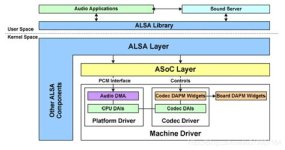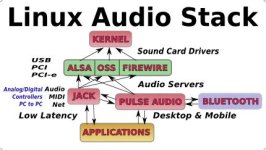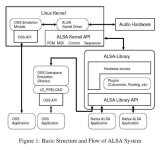No argument from me on the changes in sound when you change settings in audio playback software. Learned that 20 years ago when playing around with some pretty simple gear on my desktop computer. It's been true on all playback software that I've used since, including Moode.
It would be easy to disagree if you've never spent any time playing with the settings.
Will say that some settings benefit some systems more than others. My current main amp/speaker combo leans towards the warm side of things and increasing buffer size or changing output mode to direct steps it too far into warm territory. Yet on another system it's just wonderful.
CPU performance seems to sound better on all the systems. So it's worth experimenting.
But the bottom line is you can make positive changes pretty easily. Thanks for pointing out so many of them.
It would be easy to disagree if you've never spent any time playing with the settings.
Will say that some settings benefit some systems more than others. My current main amp/speaker combo leans towards the warm side of things and increasing buffer size or changing output mode to direct steps it too far into warm territory. Yet on another system it's just wonderful.
CPU performance seems to sound better on all the systems. So it's worth experimenting.
But the bottom line is you can make positive changes pretty easily. Thanks for pointing out so many of them.
The purpose for the buffers is to prevent the audio from dropping out, it doesn't modify the frequency response in anyway. Think of the buffers as data buckets, the CPU will periodically keep topping up the buckets to keep them full. The contents of the buffers are simply pulled from storage media like an external disk drive or streaming site and then stored in RAM for the audio subsystem to access.
The CPU Governor has absolutely no interaction with the audio stack, the governor maintains the CPU frequency scaling to ensure the CPU is running optimally depending on system load, so it increases the frequency with a higher load and decreases the frequency on lighter loads. So its not possible by fiddling with the cpu scaler to modify the audio quality.
Changing these low level system parameters cannot possibly change the audio quality. I suggest reading about basic computing architectures before making unfounded statements about what parts of an operating system or a CPU can actually change the audio quality.



The CPU Governor has absolutely no interaction with the audio stack, the governor maintains the CPU frequency scaling to ensure the CPU is running optimally depending on system load, so it increases the frequency with a higher load and decreases the frequency on lighter loads. So its not possible by fiddling with the cpu scaler to modify the audio quality.
Changing these low level system parameters cannot possibly change the audio quality. I suggest reading about basic computing architectures before making unfounded statements about what parts of an operating system or a CPU can actually change the audio quality.



Last edited:
@Indiglo
They do effect sound quality, and quite dramatically so.
As far as I can tell it's more about how timing of harmonics are affected by buffer sizes.
As an avid amplifier designer I know that harmonics and how well they are preserved from the recorded event is THE most important issue to handle when designing a top level amplifier.
Please try, and get some own experience before telling someone that it can be, when my experience is that it is unquestionable that they have an effect.
They do effect sound quality, and quite dramatically so.
As far as I can tell it's more about how timing of harmonics are affected by buffer sizes.
As an avid amplifier designer I know that harmonics and how well they are preserved from the recorded event is THE most important issue to handle when designing a top level amplifier.
Please try, and get some own experience before telling someone that it can be, when my experience is that it is unquestionable that they have an effect.
I've got decades of experience working in the computer industry and fully understand that, in theory, these changes can't modify the sound quality one bit. That's why I was so baffled 20 years back when changing some of the settings did make a difference.
Doing searches on the subject didn't bring up any explanations. That only makes it weirder.
Sit down with a great system and play with some of the settings. Listen. It might surprise you.
And if it doesn't, that's fine. We all come into this hobby from a different angle.
Doing searches on the subject didn't bring up any explanations. That only makes it weirder.
Sit down with a great system and play with some of the settings. Listen. It might surprise you.
And if it doesn't, that's fine. We all come into this hobby from a different angle.
I have plenty of experience with people chasing dragons, at the most basic level your ears could lie to you and since this is not a common/known issue that is most likely. The zero cost moode might also be exhausting the price/performance buffer with it sitting behind the ML DAC. Buttons are there to push, make all the changes you like
Oh I will talk all I like, you should refrain from telling people what to do, it gives the impression you have no argument and no social skills…I have pushed all the buttons and know exactly what they do and what they do not do.
I doubt that you have done any real tests. The differences are not small and cant be ignored.
So please test, and show some photo of the process.
Then I will believe that you at least tried.
Allo DigiOne and good external DAC with SPDIF connection please. Use the galvanic isolation option in the DigiOne.
So please test, and show some photo of the process.
Then I will believe that you at least tried.
Allo DigiOne and good external DAC with SPDIF connection please. Use the galvanic isolation option in the DigiOne.
Last edited:
If you understood basic cpu / operating system architectures you wouldn't be making such statements.They do effect sound quality, and quite dramatically so.
This is nonsensical gibberish, the audio buffer is just a data bucket held in RAM, there is absolutely no mechanism for the audio buffer to modify the harmonics of a audio waveform. This is just inventing things that simply don't exist.As far as I can tell it's more about how timing of harmonics are affected by buffer sizes.
You are making assumptions about peoples experiences and at the same time stating that your experience is the irrefutable truth, I would put my trust in peoples technical knowledge and expertise over someones statement about "experience" without having the fundamental understanding of the subject of which they are commenting.Please try, and get some own experience before telling someone that it can be, when my experience is that it is unquestionable that they have an effect.
Fiddling with kernel system settings and making statements about improvements falls under the guise of "Expectation Bias".
I'm a computer engineer by education and design automation systems for HVAC systems in bigger buildings as my daily work so I would not call myself ignorant on the topic.
I just notice that it really have an impact and I can only hope for someone like you to try it yourself and form an opinion based on experimental experience and not one based on belief only.
I just notice that it really have an impact and I can only hope for someone like you to try it yourself and form an opinion based on experimental experience and not one based on belief only.
Then you should have no trouble proving it with a properly performed and documented blind test.They do effect sound quality, and quite dramatically so.
Do you also tweak various low-level settings in those controllers and expect a change in air quality?I'm a computer engineer by education and design automation systems for HVAC systems in bigger buildings as my daily work
- Home
- Source & Line
- PC Based
- Moode Audio Player for Raspberry Pi